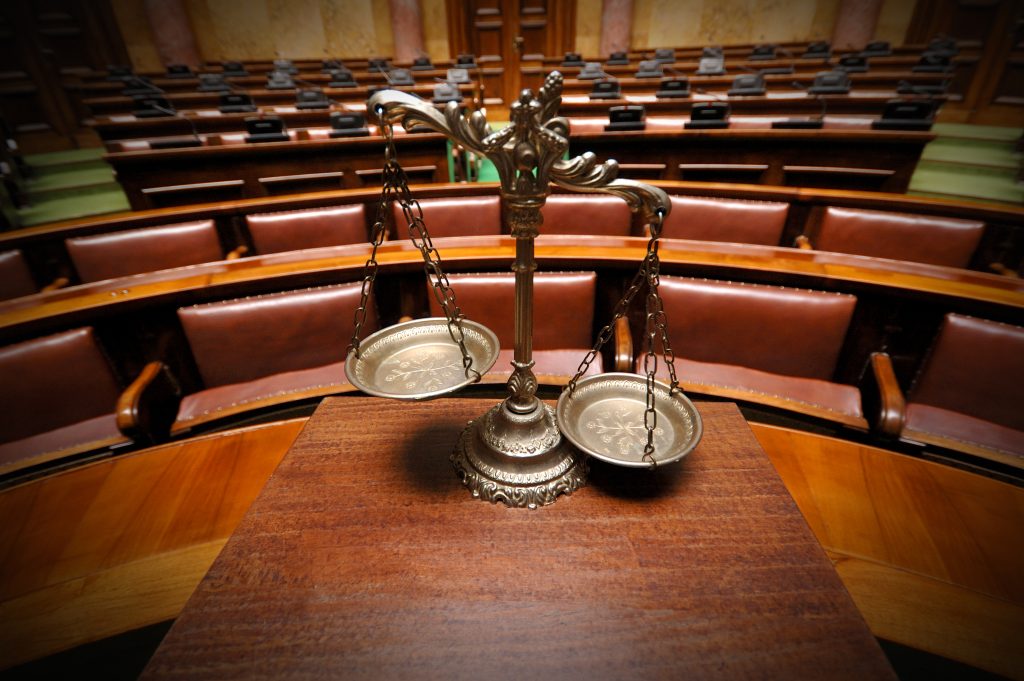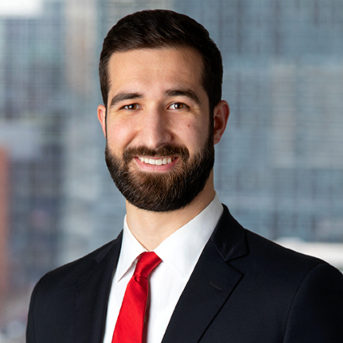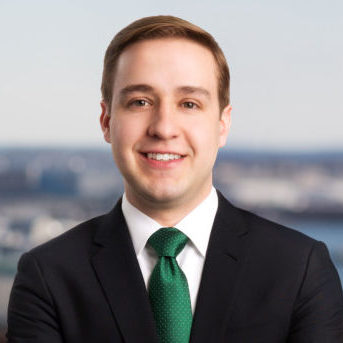“The CAFC’s recent ruling in In Re: Volkswagen further contributes to the rapidly-evolving patent venue landscape in the aftermath of the Supreme Court’s TC Heartland decision.”
 Recently, in In Re: Volkswagen Group of America, Inc., the United States Court of Appeals for the Federal Circuit (CAFC) further defined the level of control a defendant must exercise over an in-district agent to establish patent venue – i.e., where a case can be filed. The Federal Circuit held that the requisite control a principal must establish over its alleged agent in order to establish venue is “interim control”: day-to-day control over the manner of carrying out the specific actions for which the alleged agency relationship exists. Accordingly, in reversing the lower court, the Federal Circuit held that the dealerships in question were not agents of Hyundai or Volkswagen for the purposes of selling cars to consumers and providing warranty services.
Recently, in In Re: Volkswagen Group of America, Inc., the United States Court of Appeals for the Federal Circuit (CAFC) further defined the level of control a defendant must exercise over an in-district agent to establish patent venue – i.e., where a case can be filed. The Federal Circuit held that the requisite control a principal must establish over its alleged agent in order to establish venue is “interim control”: day-to-day control over the manner of carrying out the specific actions for which the alleged agency relationship exists. Accordingly, in reversing the lower court, the Federal Circuit held that the dealerships in question were not agents of Hyundai or Volkswagen for the purposes of selling cars to consumers and providing warranty services.
This holding further contributes to the rapidly-evolving patent venue landscape in the aftermath of the Supreme Court’s TC Heartland decision in 2017. As the explosion of new patent infringement cases in the United States District Court for the Western District of Texas shows, differing procedural rules, judicial tendencies, and potential jury pools often give litigants strong preferences on the favorability of different forums for litigating patent disputes. Accordingly, potential litigants should be aware of activities that may subject them – or their adversaries – to venue in various districts.
The Supreme Court’s Landmark TC Heartland Venue Decision
The patent venue statute, 28 U.S.C. § 1400(b), states that a patent infringement action “may be brought in the judicial district where the defendant resides, or where the defendant has committed acts of infringement and has a regular and established place of business.” However, beginning at least in 1990, patent venue was understood to also be proper wherever a corporate defendant is subject to personal jurisdiction, based on the general venue statute, 28 U.S.C. §1391(c). (See generally VE Holding Corp. v. Johnson Gas Appliance Co., 917 F. 2d 1574 (1990)).
This all changed in May 2017, when the Supreme Court issued its decision in TC Heartland LLC v. Kraft Foods Group Brands LLC. (137 S.Ct. 1514 (2017)). There, the Supreme Court considered “where the defendant resides” and whether § 1400(b) allows a domestic corporation to “reside” in multiple jurisdictions for the purposes of patent venue. In a move that narrowed venue options for patentees, the Court held that a corporation resides only in its state of incorporation. Accordingly, patent venue is limited to the defendant’s state of incorporation or any district where the defendant has a “regular and established place of business.”
The Federal Circuit Clarifies ‘Regular and Established Place of Business’
With the question of a defendant’s residence settled by TC Heartland, litigation has focused on what it means for a defendant to have a “regular and established place of business,” guided by a three-factor test set out by the Federal Circuit in In re Cray Inc. (871 F.3d 1355 (Fed. Cir. 2017)).
Just months after the Supreme Court’s decision in TC Heartland, in Cray, the Federal Circuit considered whether two employees, working remotely in the Eastern District of Texas, were sufficient to establish venue in that district. The Court laid out the broad framework of the venue inquiry in three steps: “(1) there must be a physical place in the district; (2) it must be a regular and established place of business; and (3) it must be the place of the defendant.” (Id. at 1360). Under this test, the Federal Court found that an employee’s physical presence in the Eastern District of Texas was not sufficient to establish venue because the remote employment meant, at most, that the employee conducted business from the district, but not that Cray had established a place of business there.
Venue Can Be Established Through an Agent of the Defendant
Following in the footsteps of Cray, the Federal Circuit considered in 2020 whether the venue inquiry could be satisfied by an agent of the defendant, rather than the defendant itself. Specifically, in In re Google, the Federal Circuit considered whether steps (1) and (2) can be established by a server rack owned by an agent of the defendant in the district. (949 F.3d 1338 (Fed. Cir. 2020)). The Federal Circuit confirmed that a “place of business” for venue purposes can be established through an agent of the defendant conducting business at that place. Accordingly, patentees can look to a defendant’s agency relationships to establish venue.
This concept was expanded upon in 2021 with Andra Group v. Victoria’s Secret, where the Federal Circuit again considered whether an agency relationship alone is sufficient for venue. (6 F.4th 1283 (Fed. Cir. 2021)). The Federal Circuit clarified that simply establishing an agency relationship is not sufficient to establish venue. Rather, a plaintiff must establish that the defendant actually engages in business from the agent’s location, thereby ratifying the agent’s place of business as the defendant’s own.
The Agency Relationship Requires “Interim Control”
The Federal Circuit’s guidance in In Re: Volkswagen Group of America, Inc., further clarified the requisite level of control for establishing an agency relationship. At issue was a pair of recent cases from the Western District of Texas. (See StratosAudio, Inc. v. Volkswagen Group of America, Inc., No. 6:20-CV-01131 (W.D. Tex. Sep 20, 2021) and StratosAudio, Inc. v. Hyundai Motor America, No. 6:20-CV-01125 (W.D. Tex. Sep. 17, 2021).
At the district court, StratosAudio sued Volkswagen and Hyundai in the Western District of Texas, asserting infringement of a series of patents directed to aspects of automotive “infotainment” systems. In both cases, StratosAudio alleged that venue was proper based on independently owned and operated dealerships that were ratified by Volkswagen and Hyundai as their own regular and established places of business.
In both cases, the district court found that Volkswagen and Hyundai exercised a high level of control over the dealerships, including aspects of the dealerships’ premises and facilities, inventory, price and payment for vehicles, term and scope of vehicle warranties, reporting requirements, and personnel requirements. The district court also found that the companies’ relationships with the dealerships were conditioned on the dealerships’ continued presence in the district, and that the companies represented to the public that they had a place of business in the district. For example, both Volkswagen and Hyundai only offer vehicles sold through authorized dealerships, and each company’s website lists authorized dealership locations – including the dealerships at issue.
Based on these factors, the district court held in both cases that the dealerships were agents of the defendants and that the defendants had ratified the dealerships as regular and established places of business for venue purposes.
But the Federal Circuit reversed, holding that the aspects of control exercised by Volkswagen and Hyundai did not establish agency “for the purpose of (i) selling cars to consumers and (ii) providing warranty services to consumers.” (Order at 11). Specifically, the Court emphasized the narrow scope of agency relationships: “just because a party may be a principal’s agent for a particular purpose does not mean that the party is the principal’s agent for another.” (Id. at 9).
The Court held that the manufacturers’ control over sales and warranty services involved, at most, setting parameters for those activities, but that the manufacturers lacked day-to-day control over the manner of carrying out those activities. For example, while Stratos cited “constraints placed on the dealerships that are arguably related to sales,” the Court determined that “none of these provisions evidence any control over the sales process itself.” (Id. at 13). Accordingly, the manufacturers lacked the “power to give interim instructions” outlined in In re Google. (Id. at 9).
Further, the Court considered contractual provisions disclaiming an agency relationship that were present in both manufacturers’ franchise agreements. While these clauses were not dispositive in determining the existence of an agency relationship, they were relevant to understanding the relationship between the manufacturers and the dealerships. Overall, the Federal Circuit held that the relationships were not agency relationships for the purposes of selling vehicles or providing warranty services to customers because the manufacturers did not exert the “interim control” required by In re Google. (Id. at 16). Interim control is characterized, as discussed in In re. Google, by the power to exert control over the business “throughout the duration of the relationship.” (Id. at 10). Here, Stratos was only able to show that the manufactures set initial parameters for performance; the daily manner of conducting business was entirely within the dealerships’ control. Without an agency relationship, venue was not proper. The case was remanded to the district court to determine whether transfer or dismissal is appropriate.
Practical Considerations for Potential Defendants
Potential litigants should be aware of the possibility of establishing venue through an agency relationship. While TC Heartland narrowed venue options to a defendant’s state of incorporation and regular and established places of business, a defendant may still be subject to suit wherever its agent has a place of business. However, this requires an agency relationship established through “interim control” over the day-to-day operations of the alleged agent’s business. Where franchisors merely set parameters for operation, but do not control the daily manner of operation, franchisees may not be considered agents for the purpose of establishing patent venue.
Image Source: Deposit Photos
Image ID:17461295
Copyright:vladek

![[IPWatchdog Logo]](https://ipwatchdog.com/wp-content/themes/IPWatchdog%20-%202023/assets/images/temp/logo-small@2x.png)




![[Advertisement]](https://ipwatchdog.com/wp-content/uploads/2024/04/Patent-Litigation-Masters-2024-sidebar-early-bird-ends-Apr-21-last-chance-700x500-1.jpg)

![[Advertisement]](https://ipwatchdog.com/wp-content/uploads/2021/12/WEBINAR-336-x-280-px.png)
![[Advertisement]](https://ipwatchdog.com/wp-content/uploads/2021/12/2021-Patent-Practice-on-Demand-recorded-Feb-2021-336-x-280.jpg)
![[Advertisement]](https://ipwatchdog.com/wp-content/uploads/2021/12/Ad-4-The-Invent-Patent-System™.png)







Join the Discussion
5 comments so far.
Anon
March 16, 2022 09:59 amPro Say,
It has never been my position that the Supreme Court is soley responsible for the Gordian Knot of patent jurisMISprudence on eligibility.
I invite you to pay close attention to my writings.
That being said, I have stated — and maintain — that the Supreme Court holds primary responsibility and culpability for the Judicial Branch created MESS that we have on our hands.
Pro Say
March 15, 2022 10:53 amAnon: Bravo! (noting your, “MAINLY”) Great to see you’ve finally moved off your position that SCOTUS is solely responsible for the current innovation-crippling, infringing-enabling eligibility morass.
We welcome you with open arms.
Anon
March 14, 2022 05:59 pmPro Say,
As you have been corrected before, the blame on eligibility goes MAINLY to the Supreme Court (who have turned down what – 60 or so – petitions to correct what the CAFC have done?
Pro Say
March 14, 2022 12:49 pm. . . in other words . . .
“As evidenced by our refusal to follow our Supreme Court’s express directive to tread lightly when it comes to denying eligibility, whatever we have to do in order to take away the rights of inventors and patent owners, we will do.”
— The CAFC
Anon
March 14, 2022 11:16 amThank you for fleshing this out in such a dispassionate manner.